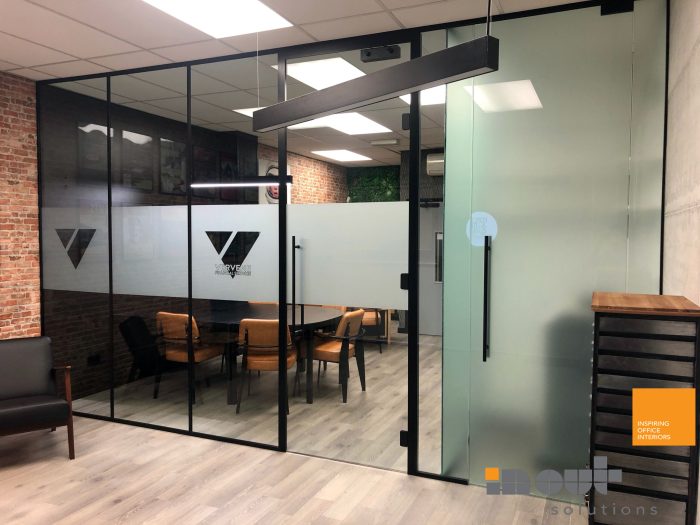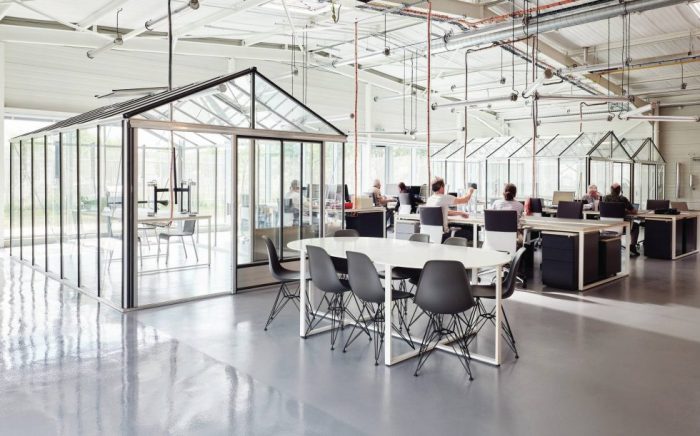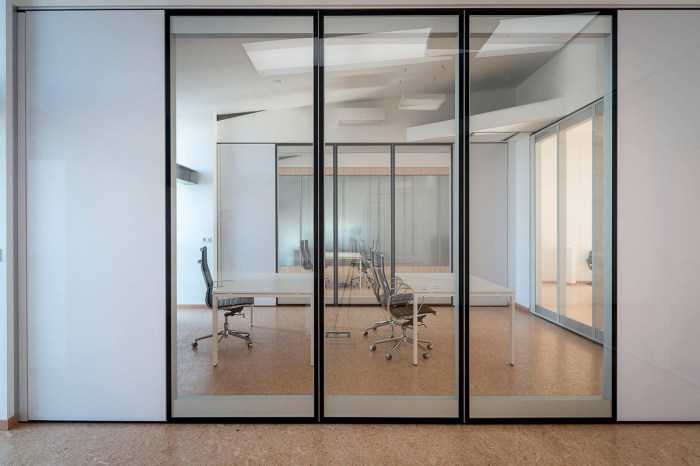Glass partitions should never be used in today’s medical offices. This statement may come as a surprise to some, but there are several compelling reasons why glass is no longer the ideal choice for medical environments.
In this article, we will explore the architectural, privacy, hygiene, accessibility, and inclusivity concerns associated with glass partitions in medical offices. We will also provide suggestions for alternative partition materials and design solutions that meet the unique needs of these spaces.
Architectural Considerations

The use of glass partitions in medical offices can significantly impact the distribution of natural light within the space. Glass allows light to penetrate deeper into the office, creating a brighter and more inviting environment. However, it is important to consider the potential glare and reflections that can be caused by glass partitions, especially in areas where medical procedures are performed.
Glass partitions can also affect the overall aesthetics and ambiance of medical spaces. They can create a modern and sophisticated look, but they can also feel cold and impersonal. It is important to choose glass partitions that complement the overall design of the office and create a comfortable and welcoming atmosphere for patients.
Alternative Partition Materials, Glass partitions should never be used in today’s medical offices
- Wood
- Fabric
- Metal
- Plastic
Privacy and Confidentiality

Glass partitions may compromise patient privacy and confidentiality. Patients may feel uncomfortable being examined or treated in a room with glass walls, as they may be visible to other patients or staff members. Additionally, glass partitions can allow sound to travel more easily, which could lead to breaches of patient confidentiality.
There are several potential risks and vulnerabilities associated with using glass partitions in medical settings. For example, patients may be able to see medical records or other sensitive information through the glass. Additionally, glass partitions can be easily broken, which could allow unauthorized individuals to gain access to the medical office.
Alternative Privacy Measures
- Curtains or blinds
- Frosted glass
- Solid walls
- Acoustic panels
Hygiene and Infection Control: Glass Partitions Should Never Be Used In Today’s Medical Offices

Glass partitions can be difficult to clean and disinfect, which can increase the risk of infection in medical offices. Glass surfaces can harbor bacteria and viruses, and they can be difficult to reach and clean thoroughly. Additionally, glass partitions can create a barrier between patients and healthcare providers, making it difficult to provide proper care.
There are several best practices for infection control in medical spaces that avoid the use of glass partitions. For example, medical offices should use solid walls or curtains to separate patients, and they should use antimicrobial surfaces that are easy to clean and disinfect.
Accessibility and Inclusivity

Glass partitions can create barriers for individuals with disabilities or mobility impairments. For example, patients who use wheelchairs or other mobility aids may find it difficult to navigate around glass partitions. Additionally, patients with visual impairments may find it difficult to see through glass partitions, which could make it difficult for them to find their way around the office.
It is important to ensure accessibility and inclusivity in medical offices. Medical offices should use alternative partition designs that promote accessibility and meet the needs of all patients. For example, medical offices can use solid walls or curtains to separate patients, and they can use ramps or elevators to make it easier for patients with mobility impairments to navigate the office.
Answers to Common Questions
Why are glass partitions not suitable for medical offices?
Glass partitions compromise patient privacy, hinder infection control efforts, create barriers for individuals with disabilities, and detract from the overall aesthetics and ambiance of medical spaces.
What are some alternative partition materials that can be used instead of glass?
Alternative partition materials include solid walls, curtains, and frosted or opaque glass.
How can medical facilities create environments that are safe, welcoming, and conducive to healing?
By embracing alternative partition materials and design solutions that prioritize patient privacy, infection control, accessibility, and inclusivity.